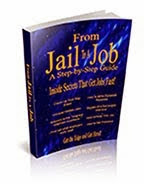Pennsylvanians with old, low-level offenses on their records have fresh hope that past mistakes won’t cost them new jobs or housing.
As of Dec. 26, the state’s new Clean Slate Law allows people to petition to seal legal records in many misdemeanor cases that are more than 10 years old.
“Non-violent first-degree misdemeanors and most simple assault convictions became eligible for sealing, if the individual has not been convicted for 10 years and if no fines and costs are owed,” Sharon Dietrich, legislation director for Community Legal Services, explained in a press release.
A second phase of the law will kick in on June 28, when courts will begin automatically sealing records in eligible cases.
Here are answers to some key questions about the new law and how it works.
How is a criminal record sealed?
An ex-offender starts by completing a Petition for Order for Limited Access, a one-page form at the Self-Help Center at the county courthouse and online at www.pacourts.us/forms.It asks for such information as the charges and the judge who imposed sentence.
If the offense happened in Lancaster County, the completed petition should be taken to the Clerk of Courts at the Lancaster County courthouse. There’s a $137 fee, but the indigent may seek a waiver.
Clerk of Courts Jacquelyn Pfursich said her office sends the petition to the judge who imposed sentencing and to the District Attorney’s Office. The district attorney has 30 days to challenge the petition, leading to a hearing before the judge. But if the district attorney doesn’t object, no hearing is needed.
District Attorney Craig Stedman said he expects that filing an objection would be rare, happening, perhaps, if facts on a petition were misrepresented.
Stedman called Clean Slate an overdue, crime-prevention measure because it promotes employment.
“If someone can have a job, they are tying themselves to the community,” he said. “That's a great indicator that the person is less likely to commit crime.”
For those who need it, free legal help is available through “My Clean Slate,” a program created by Community Legal Services in partnership with the Pennsylvania Bar Association. Volunteer attorneys will help to determine if someone is eligible for the provisions of the Clean Slate legislation, which went into effect on Dec. 26.
The program’s website is at https://clsphila.org/mycleanslatepa
What happens after the judge grants the petition?
The Clerk of Courts Office marks its record of the conviction: “Sealed. Not open for public inspection.”
The office also notifies the police department, the magisterial district judge, Lancaster County Prison and other agencies that they are prohibited from sharing the records.
How does automatic sealing work?
The new law creates an automated process to seal any arrest that didn’t result in a conviction, summary convictions after 10 years, and some misdemeanor convictions for those who've been law-abiding for 10 years.For those cases, no petition needs to be filed starting June 28.
Instead, the Administrative Office of Pennsylvania Courts will pull eligible records from its database of all criminal records and submit them to the Pennsylvania State Police to check for possible conflicts. The ex-offender will get a letter saying the old record will no longer show up on background checks.
The state will remove eligible docket sheets from its online listing of criminal cases, but not the listing of fines and costs.
The state office will also notify the Clerk of Courts which of its records must be sealed.
Pfursich said she doesn’t know how many local cases could end up sealed. In 2018, a record 7,522 criminal cases were filed locally.
Are people taking advantage of the new law already?
About 700 people statewide petitioned to have their records sealed in the first week after the law took effect, Gov. Tom Wolf said at a news conference Wednesday.But it's too early to predict the law's impact here, officials said.
In Lancaster County, there wasn’t immediately a noticeable increase in the number of petitions for offenses that fit within the margins of the Clean Slate Law, according to Steve Gumm, the executive director of the Lancaster Bar Association.
But the bar association is “very happy with the law's passage” and sees it as the right step for those whose old, non-violent offenses have created barriers for their lives.
Attorney Mark F. Walmer, who routinely handles cases for sealing, expunging or pardoning past offenses, said he believes the big change will be the phase of automated sealing, when petitions will no longer be needed for eligible offenses.
“The sealing statute will be good for people who have one or two very old misdemeanor offenses," he said.
Walmer noted that the responsibility for verifying that a record has been automatically sealed will fall on individuals. Under the law, only “non-controversial” offenses are automatically sealed; other cases — those that include multiple charges or have unpaid fees, for example — make it through the automated system.
“There are many different disqualifications," Walmer said. “Know exactly what is on your record, have it reviewed by an attorney.”
How big a difference will it make?
Tara Loew leads Lancaster CareerLink’s Re-Entry Services, which works with job-seekers who have criminal backgrounds.That program serves about 600 people a year, she said, and overall, about a quarter of the people Lancaster CareerLink works with report some kind of criminal record.
Many employers ask about misdemeanor convictions, she said, and retail theft charges can be “extremely limiting” for job-seekers, “more so than felony charges in some cases.”
Loew expects the new law to have a big impact on job-seekers.
In addition to giving individuals that deserve it a second chance, she said, the law breaks down barriers to finding full-time life-sustaining employment — helping families thrive and contributing to the local economy and community safety, as someone gainfully employed is much less likely to reoffend.
She said it also helps employers who might be inclined to give applicants a second chance by taking liability away from them, because legally they’re hiring someone with a “clean slate.”
Loew also said CareerLink has recently held two free criminal record legal clinics for job-seekers, with MidPenn Legal Services, Lancaster Bar Association, Rep. Mike Sturla and the law firm Bentley, Gibson, Kopecki Smith P.C.
Attendees got a chance to have an attorney look over their records and see what their options might be, she said, and when possible were offered free continuing legal help.
The clinics were a hit, Loew said, and CareerLink now plans to offer them quarterly, capped at 30 attendees.
Can an employer ask about sealed records?
Attorney Jennifer Craighead Carey, chair of the Barley Snyder Employment Practice Group, said in an email that Clean Slate prohibits employers from requesting criminal history records that have been sealed and they may not rely on such information in making an employment decision.The law also allows applicants questioned about sealed records to answer as if the offense did not occur, she wrote, recommending that employers use disclaimer stating that applicants “should not provide information about expunged or sealed criminal convictions.”
How do employers feel about Clean Slate?
Tom Baldrige, president and CEO of the Lancaster Chamber, said it hasn’t heard much from employers about the new law, but he believes they’re generally supportive of it.“No one is looking for additional barriers to hiring people,” he said, noting that the current workforce need is the most acute he’s seen in 19 years with the chamber. “There are companies that are literally turning down business opportunities because they don’t have the workers, and that is relatively widespread.”
He doesn’t consider the law a game-changer for employers, he said, but does think it “gives some people who might have been hesitant to fully enter the workforce because of some past indiscretions the confidence to come back, and that’s a win-win.”
Harold G. Ford III of NetAtWork is president of Lancaster Society for Human Resource Management.
He noted that Clean Slate passed the Legislature with overwhelming bipartisan support and said, “I think that says really clearly this is really good for potential applicants but also for employers.”
Does it increase housing accessibility?
Ninety percent of the landlords that Tabor Community Services works with through its Community Housing Solutions program — an initiative of the Lancaster County Coalition to End Homelessness — have background checks as part of their screening process, according to organization president Michael F. McKenna and program manager Laura Willmer.Although not the only criteria landlords are applying when screening tenants, past criminal offenses can create an additional barrier to affordable housing, McKenna said.
Tabor does not track the criminal records of those within their programs, but a significant number of those who have disclosed their background would fall under the Clean Slate law's parameters, Willmer and McKenna said.
“Some landlords will do a full background check and look for absolutely everything and others do not do one at all,” said Ann Linkey division manager at Tabor.
Usually, the criminal screenings are to find “violent and drug-related" offenses, Linkey said. The types of offenses that landlords and property managers find disqualifying vary.
“Some will look at a DUI and let it go if it was just that, others would say no,” she said.
Although her team does not track how many housing applications were rejected due to criminal background checks and what those offenses were, it does happen, Linkey said.
“It's a good thing for our clients who have those kinds of backgrounds," Linkey said of Clean Slate.
“It will complement the federal Fair Housing Act," Ray D'Agostino, chief executive officer at the Lancaster Housing Opportunity Partnership, said of the new law. In most cases, real estate decisions based solely on criminal records are already prohibited, he said.
This article originally published at https://lancasteronline.com https://lancasteronline.com/news/local/new-clean-slate-law-gives-some-ex-offenders-fresh-hope/article_b70bdbf6-105b-11e9-9d7a-938b4041b090.html
Expungement - A Way to Erase Your Criminal Record
I am a Felon! How to clear your Criminal Record
Companies Hire Felons | Companies That Hire Felons | Companies That Hire Ex-offenders | Employers That Hire Ex-offenders | Employers That Hire Felons | Jobs For Felons | Jobs For Ex-offenders | Jobs That Hire Felons | Resumes for Felons | Felon Friendly Jobs | Felon Friendly Employers | Jobs for Felons | Jobs For People That Have Felonies | Jobs For People With A Criminal Record | Expungement for Felons | Sealing of Records | Housing for Felons
Eric Mayo











